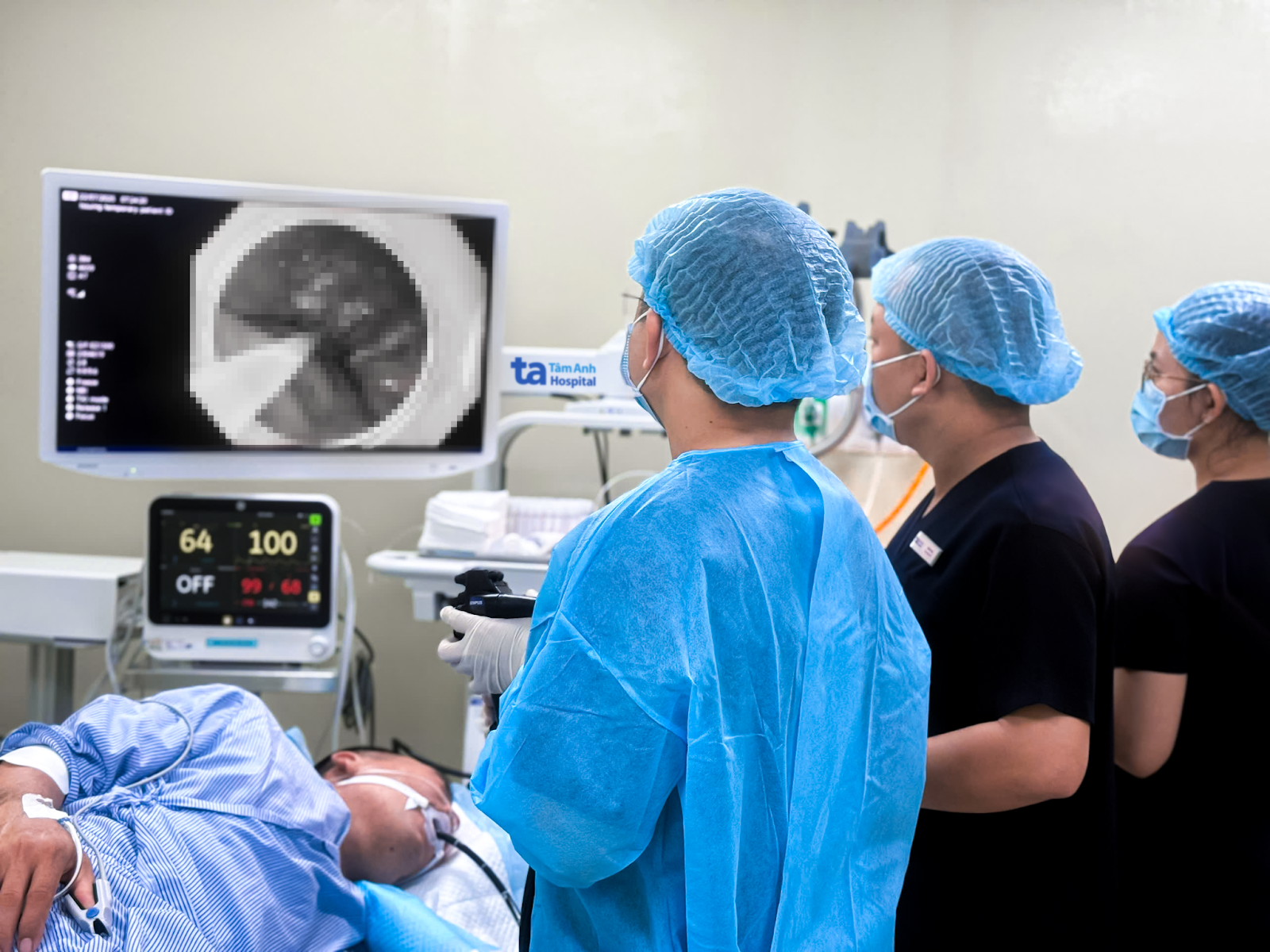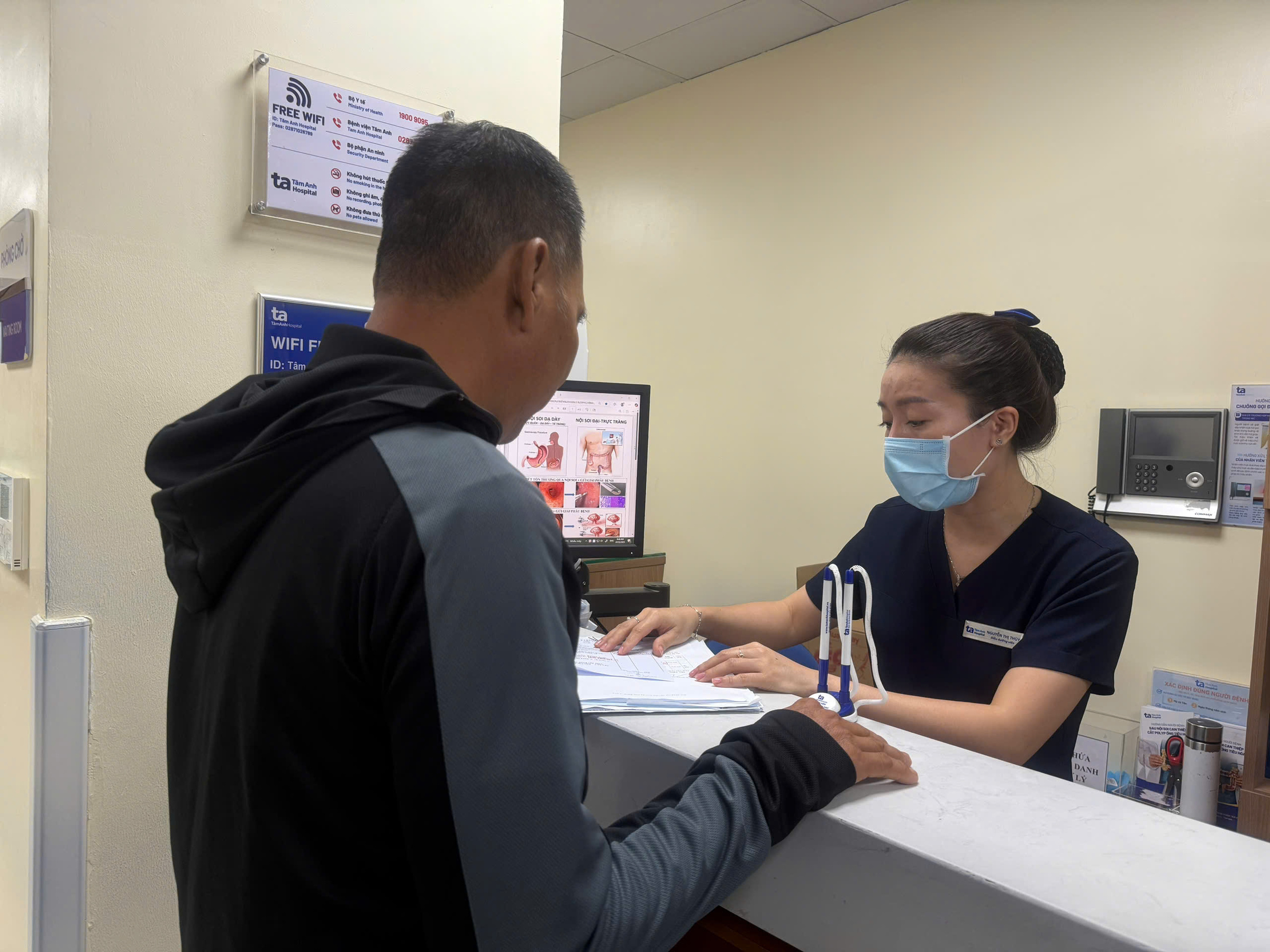Tri's endoscopy results at Tam Anh General Hospital in TP HCM revealed an H. pylori infection, atrophic gastritis, and intestinal metaplasia in the antrum and lesser curvature of the stomach.
Doctor Tran Thanh Binh, from the Center for Endoscopy and Endoscopic Gastrointestinal Surgery, stated that the patient did not have stomach ulcers. However, using electronic chromoendoscopy with 150x magnification, doctors detected a small abnormal area suspected to be early-stage cancer. The biopsy confirmed early-stage stomach cancer. The tumor was less than 2 cm, had not penetrated deep into the submucosa, was moderately differentiated, and had not spread to the lymph nodes.
Tri underwent endoscopic submucosal dissection (ESD). This minimally invasive procedure removes the cancerous tissue through an endoscope inserted through the mouth, eliminating the need for surgery and preserving the stomach.
The doctor used an electric knife to mark points around the lesion, then cut a circle and completely removed the tumor. The tissue was sent for pathological examination to assess the invasion depth and margin status.
 |
Doctor Binh performs endoscopic submucosal dissection on Tri. Photo: *Tam Anh General Hospital* |
The results confirmed moderately differentiated adenocarcinoma, invading the lamina propria but not the surrounding area. The cancer was completely removed, and the patient requires regular monitoring but no further surgery, chemotherapy, or radiation therapy.
According to Doctor Binh, if detected later, the cancer could have progressed to an advanced stage, potentially requiring stomach removal, chemotherapy, radiation therapy, targeted therapy, and other costly treatments with a lower quality of life and prognosis.
ESD is an advanced technique performed in a few well-equipped hospitals. During the procedure, minor bleeding can occur, but doctors can quickly address it using thermal clips or other instruments for immediate hemostasis.
 |
Tri (left) completing discharge procedures. Photo: *Tam Anh General Hospital* |
Stomach cancer is a dangerous digestive disease with high incidence and mortality rates, increasingly affecting younger individuals. It's often detected in advanced stages when cancer cells have already invaded deeply or metastasized. The prognosis depends on the stage at diagnosis and treatment. Doctor Binh noted that the 5-year survival rate for early-stage stomach cancer is very high, potentially exceeding 90%. However, in stage IV, when cancer has spread to distant organs like the liver or lungs, the 5-year survival rate is often below 5%.
Individuals experiencing suspicious symptoms should seek medical attention. Doctors can perform a biopsy to accurately determine the nature of the tumor and recommend prompt treatment.
Quyen Phan
| Readers can submit questions about digestive diseases here for doctor's answers. |












